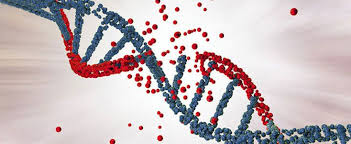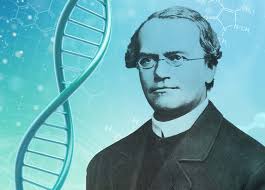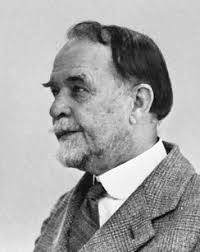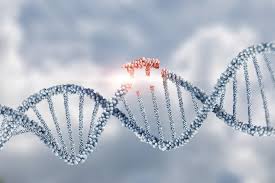This article seeks to provide an overview of modern genetics, examining the major aspects of contemporary genetics in terms of current knowledge and how earlier discoveries fit into the overall picture.
The article includes a brief historical perspective and analysis of the major contributions to the field of genetics and society in general. It provides details on the foundation of genetics, early philosophers, thinkers, and workers in the field, paving the way for an appreciation of their great contributions.
The works of Gregor Mendel and Charles Darwin, as founding fathers of genetics, are particularly emphasized.
Read Also: Sheep gene insights could help farmers breed healthier animals
History of Genetics

1. Charles Darwin (1809 – 1882)
The English naturalist Charles Darwin (Plate 1) is renowned for introducing the concept of the theory of evolution. Before the publication of Darwin’s The Origin of Species in 1859, most scholars believed in the fixed nature of species from their origin in the grand creation of life.
By that time, most biologists agreed that new species arise through some process of evolution from older species. Butler stated, “Darwin’s chief glory is not that he discovered evolution but that he made men believe in it.”
Darwin’s voyage around the world from 1831 to 1836 allowed him to study the diverse fauna and flora of South America and several islands, contributing to the development of his evolutionary theory.
The Three Principles of Darwin’s Theories
i. Principle of Variation: Natural variation occurs in every species, indicating that no two individuals are exactly alike; offspring are not exactly like their parents.
ii. Principle of Heredity: Variations may be hereditary and passed onto descendants, resulting in individuals resembling their parents more than unrelated individuals.
iii. Principle of Selection: Some individuals survive and reproduce more successfully than others due to better adaptation to the environment. This leads to the survival of the fittest, a key aspect of natural selection and evolution.
2. Gregor Mendel (1822 – 1884)

Gregor Johann Mendel, the Austrian monk (Plate 2), is regarded as the ‘father of genetics.’ Between 1856 and 1863, Mendel cultivated and tested approximately 28,000 garden pea plants (Pisum sativum) and discovered that offspring retained traits from their parents. Mendel’s work led to the formulation of the principles of heredity known as particulate inheritance.
Mendel’s Key Discoveries:
i. Each parent contributes one factor of each trait to its offspring.
ii. The two members of each pair of factors segregate during gamete formation.
iii. Both males and females contribute equally to offspring traits.
iv. The blending theory of inheritance was proven incorrect.
v. Acquired traits are not inherited.
The Three Scientists Who Re-discovered Mendel’s Work
Hugo de Vries, Carl Correns, and Erich von Tschermak-Seysenegg were the scientists who independently rediscovered Mendel’s laws in 1900 while working on different plant hybrids.
i. Carl Correns (1864 – 1933)
Carl Correns (Plate 3) was a German botanist who, in 1900, published results confirming Mendel’s laws. He was influenced by Carl Nägeli, a botanist who had corresponded with Mendel. Correns’ work helped clarify Mendel’s laws of segregation and independent assortment.
ii. Hugo de Vries (1848 – 1935)
Hugo de Vries (Plate 4) was a Dutch botanist and one of the first geneticists. He is known for rediscovering Mendel’s principles and introducing the concept of genes in the 1890s, which laid the groundwork for modern genetics.
iii. Erich von Tschermak (1871 – 1962)
Erich Tschermak (Plate 5) was an Austrian agronomist who, in 1900, also independently rediscovered Mendel’s laws. His work in plant breeding contributed significantly to agricultural genetics.
Read Also: 17 Medicinal Health Benefits Of Mucuna pruriens (Monkey Tamarind)
3. Thomas Hunt Morgan (1866 – 1945)

Thomas Hunt Morgan (Plate 6), an American biologist, won the Nobel Prize in Physiology or Medicine in 1933 for his work on the role of chromosomes in heredity. His experiments with fruit flies (Drosophila) provided significant insights into the behavior of chromosomes during inheritance, especially with regard to sex-linked traits.
4. Watson and Crick: Discoverers of the DNA Structure
In 1953, James Watson and Francis Crick (Plates 7 and 8) proposed the double-stranded helical structure of DNA based on X-ray crystallographic images.
Their model of DNA, which is complementary and anti-parallel, revolutionized biology and genetics. This discovery has had profound implications for molecular biology and genetic engineering.
5. Ian Wilmut (1944 – Present)
Sir Ian Wilmut (Plate 9) is a British embryologist known for cloning Dolly the sheep in 1996. This achievement, which utilized nuclear transfer of differentiated adult cells, sparked widespread public interest in cloning and stem cell research. Wilmut’s work has had lasting effects on reproductive biology and agricultural practices.
The Human Genome Project
The Human Genome Project, an international effort to map the human genome, reached a major milestone in June 2000 with the announcement of a “working draft” of the human genome.
This effort, which included scientists from around the world, has expanded understanding of genetics and opened new avenues for genetic research, including studies on various animal species like cattle.
Do you have any questions, suggestions, or contributions? If so, please feel free to use the comment box below to share your thoughts. We also encourage you to kindly share this information with others who might benefit from it. Since we can’t reach everyone at once, we truly appreciate your help in spreading the word. Thank you so much for your support and for sharing!

